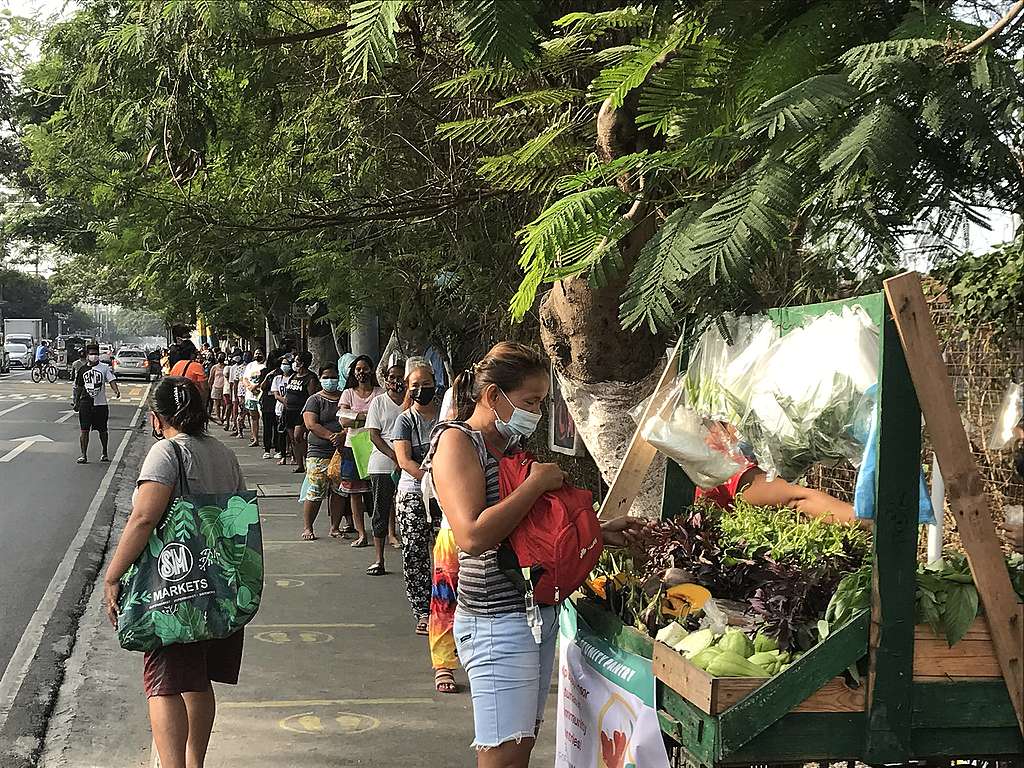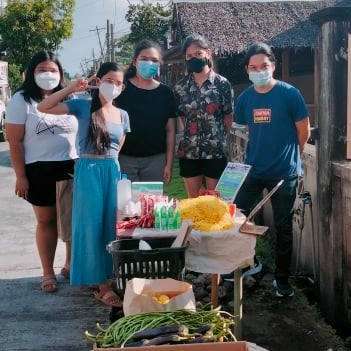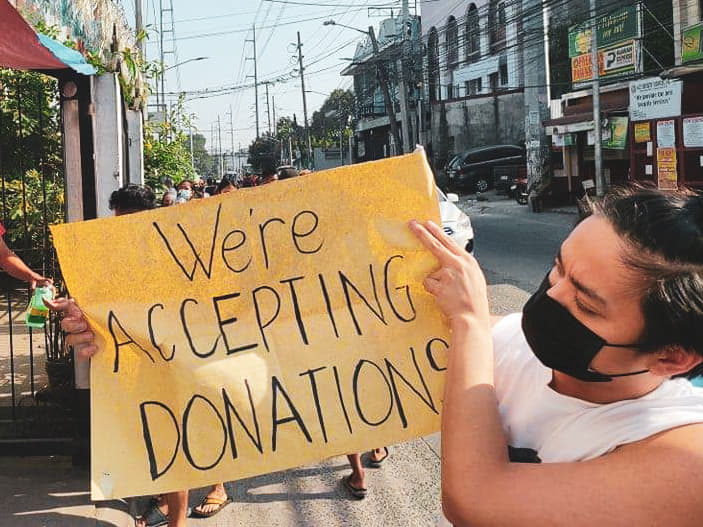On community pantries, some of the questions that have probably crossed our minds are: how can they be sustained, and what will happen when donations become sparse? Our team talked to three youth organizers who have started community pantries in their neighborhoods, to get an idea of how they see this moving forward.
Katia Dela Cruz from Muntinlupa City works for a Christian NGO. She was motivated to start a community pantry upon seeing the impact of the pandemic in her community. Given the pandemic, Katia knew that it was risky. They had to make sure that health protocols were properly implemented.
“Cliche as it may sound, it was worth it – especially when we got to see the smiles (behind the masks!) in the eyes of the people we got to help through the pantry,” Katia said.

In Camarin, Denver Del Rosario, a writer and social media specialist for INQUIRER.net, also put up a community pantry after being inspired in his interview with Patricia Non. Initially, they shelled out money from their own pockets, but after word got out about their initiative, donation and help poured in.
A similar effort was also done in Iriga City, Camarines Sur, led by Ruben Belmonte Jr. and his friends. They started the Karayan community pantry amid red-tagging remarks. Their project was also met with great support when they posted about their plan of setting up a community pantry. People offered help and donations “in a flash,” as Ruben recalled.
For Katia, Denver, and Ruben, their community pantries became possible because of the collaboration and support of volunteers, family, and friends who helped repack goods, as well as their barangay and local police helping enforce health protocols.
Witnessing the good in people
For Ruben and his friends, community pantries were not just a venue for people to receive donations, it also became a vehicle for people to participate in this collective effort. He shared, “We put up our pantry in a spot in a barangay and left it for half an hour, then we unexpectedly saw some coins and bills left above our pantry table. There was another instance when a car suddenly stopped by in front of our pantry and directly donated some cash to help our initiative.”

For Katia, her initiative has shown that not all Filipinos are pasaway. She recalls, “most of the people lining up in our pantry also follow our health protocol of wearing a face mask, face shield, and practice physical distancing.”
Setting up a community pantry has made Denver believe more in the power of collective action in mitigating a crisis. “We never really expected much help because times are tough amid the COVID-19 pandemic. But the people really came through,” Denver said.
“I learned more about people, but I also learned more about my privilege as a member of the middle class. It is only too easy for us who don’t really have to worry about paying bills or going hungry to make assumptions about the poor. Some have branded them as “pasaway” — all I saw were people who just wanted to survive. Sure, there were some who went to our pantry and took more than the others but I reserved any judgment, because we don’t really know what they’re going through. I just wanted to help as much as I could,” he added.
Hunger as ‘the silent pandemic’

Katia, Denver and Ruben think that community pantry initiatives are not the ultimate solution to end hunger and poverty in the country. It is actually a response to the administration’s shortcomings in handling the national situation.
“We demand the government to do more, as it has both the power and the resources to make sure that no Filipino would ever have to worry about getting through the day,” Denver said. Katia thinks that proper allocation to the government’s budget should be done: “I hope the government truly uses its budget to make sure fewer people die, not just because of the pandemic, but more so because of hunger. Private sectors with much more resources can also help in this initiative.”
For Ruben, “the government should not settle in aggrandizing the pantries as a reflection of the good and kindness that remains in every Filipino. The government should recognize these initiatives mirror how poor the current government and their administration are in responding to the health and economic crisis being experienced by our countrymen. With proper interventions, course of actions, and response to our current worsening situation, we would not have come to a point where ayuda is being initiated by the exact people who actually need them.”
More than a month has passed since community pantries sprouted across the country, and I am deeply inspired by this initiative sparked by the youth, as this shows an important element in striving for a better normal:
It has brought people together to work on solutions, and while it has been widely supported, the challenge now is keeping it going. I echo the calls of the youth sector for the government to step up their efforts, as well as enable a people-centered governance where citizens’ initiatives—just like the community pantry—are supported.
